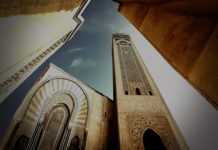[td_block_big_grid_slide td_grid_style=”td-grid-style-4″ limit=”8″]
[td_block_2 custom_title=”FEATURED” category_id=”2″ sort=”random_posts” limit=”6″ ajax_pagination=”next_prev”][td_block_1 custom_title=”PURIFICATION OF THE SOUL” header_color=”#f65261″ category_id=”47″ ajax_pagination=”next_prev”]
[td_block_19 custom_title=”WHY ISLAM?” header_color=”#82b440″ category_id=”182″ limit=”6″ ajax_pagination=”next_prev”][td_block_19 custom_title=”THE QURAN” header_color=”#82b440″ category_id=”896″ limit=”6″ ajax_pagination=”next_prev”][td_block_2 custom_title=”HADITH AND SUNNAH” header_color=”#ff3e9f” category_id=”363″ limit=”6″ ajax_pagination=”next_prev”]
[adrotate group="2"]
[td_block_2 custom_title=”LATEST” limit=”6″] [td_block_7 custom_title=”FEATURED” category_id=”2″ sort=”random_posts” limit=”8″]
[adrotate group="2"]
[td_block_2 custom_title=”ISLAMIC THEOLOGY” category_id=”170″ limit=”6″ ajax_pagination=”next_prev”][td_block_1 custom_title=”ISLAMIC RULINGS” header_color=”#f65261″ category_id=”195″ ajax_pagination=”next_prev”]
[td_block_19 custom_title=”ISLAMIC HISTORY” header_color=”#82b440″ category_id=”620″ limit=”6″ ajax_pagination=”next_prev”][td_block_2 custom_title=”THEOLOGY AND RULINGS” header_color=”#ff3e9f” sort=”random_posts” limit=”6″ ajax_pagination=”next_prev”]
[adrotate group="2"]
[td_block_2 custom_title=”LATEST”] [td_block_7 custom_title=”POPULAR” sort=”popular” limit=”6″]
[adrotate group="2"]
LATEST ARTICLES
The Bond of Holy Love
An extract from Az-Zaujus Salih (The Pious Husband) by Mujlisul Ulama of South Africa
The Prophet saw said: “The noblest of you are those who are the noblest to their families…”
“Verily, among the most perfect Believers in Iman are those who are best in character and kindest to their wives.”
Even lifting a morsel of food to the mouth of the wife has been given the significance of ibadat. It is an act of love by which the husband derives thawab (reward in the Hereafter).
It was part of the Uswah Hasanah (Noble character) of the Prophet sawa to engage in light hearted talk with his wives. Hadhrat Abu ra said:
Allah loves a man who caresses his wife. Both of them are awarded thawab because of this loving attitude and their rizq (earning) is increased.”
A man is rewarded for even a drink of water he presents to his wife. According to the Prophet saw the mercy of Allah Ta’ala cascades on a couple when the husband glances at his wife with love and pleasure and she returns his glance with love and pleasure.
When a husband clasps the hand of his wife with love their sins fall from the gaps between their clasped fingers. Even mutual love between husband and wives serve as a kaffara (expiation) for sins. The Prophet saw said:
“When a man enters his home cheerfully, Allah creates, as a result of his happy attitude, an angel who engages in istighfar (prayers of forgiveness) on behalf of the man until the day of Qiyamah.”
May Allah give us the ability to act upon the above, ameen.
Daughters of the Prophet Ruqayyah (r.a)
Ruqayyah (R.A.) was Rasulullah’s (Sallallahu Alaihi Wasallam) second daughter. She was married to Utba the son of Abu Lahab. Abu Lahab was the uncle of Rasulullah (Sallallahu Alaihi Wasallam) but had become his violent enemy and of Islãm and its followers.
Both father and son did not enter into Islãm and Utba repudiated Ruqayyah (R.A.) on the incitement of his father. Rasulullah (Sallallahu Alaihi Wasallam) gave Ruqayyah (R.A.) in marriage to Uthman ibn Affãn (R.A.).
When the battle of Badr took place, Ruqayyah (R.A.) was seriosly ill. Uthman (R.A.) had the desire to fight but Rasulullah (Sallallahu Alaihi Wasallam) asked him to stay at home and take care of his sick wife. He told him that he would be rewarded equal to the participants. He marked him ’Fighter of Badr’ and gave him his share in the booty.
Ruqayyah (R.A.) passed away on the day the Muslims returned victorious.
About Struggling…
A man found a cocoon of a butterfly. One day a
small opening appeared. He sat and watched the
butterfly for several hours as it struggled to force its
body through that little hole. Then it seemed to stop
making any progress. It appeared as if it had gotten
as far as it could, and it could go no further.
So the man decided to help the butterfly. He took
a pair of scissors and snipped off the remaining bit
of the cocoon.
The butterfly then emerged easily. But it had a
swollen body and small, shriveled wings.
The man continued to watch the butterfly because
he expected that, at any moment, the wings would
enlarge and expand to be able to support the
body, which would contract in time.
Neither happened! In fact, the butterfly spent the
rest of its life crawling around with a swollen body
and shriveled wings. It never was able to fly.
What the man, in his kindness and haste, did not
understand was that the restricting cocoon and
the struggle required for the butterfly to get
through the tiny opening were Allah’s way of
forcing fluid from the body of the butterfly into
its wings so that it would be ready for flight
once it achieved its freedom from the cocoon.
Sometimes struggles are exactly what we need in
our lives. If Allah allowed us to go through our
lives without any obstacles, it would cripple us.
We would not be as strong as what we could
have been. We could never “fly”!
I asked for Strength………
And Allah gave me Difficulties to make me strong.
I asked for Wisdom………
And Allah gave me Problems to solve.
I asked for Prosperity………
And Allah gave me Brain and Brawn to work.
I asked for Courage………
And Allah gave me Danger to overcome.
I asked for Love……….
And Allah gave me Troubled people to help.
I asked for Favours………
And Allah gave me Opportunities.
I received nothing I wanted ……..
I received everything I needed!
Islamic Spirituality and Mental Well-Being
Modern science has recently taken a keen interest in the wisdoms found in the ancient eastern traditions such as Buddhism, Confucianism, Taoism, and Hinduism. In the relatively new field of positive psychology, many of these eastern traditions are utilized to enhance general well-being. The Buddhist practice of mindfulness meditation is a great example of a modern psychological intervention that has been taken directly from the East. A browse through the literature will reveal a plethora of studies that have studied its neurobiological effects and therapeutic benefits. The promising results found in these studies have led to the incorporation of mindfulness meditation into a wide variety of treatment protocols for both physical and mental illnesses.
However, the tradition of spirituality within Islām is arguably the least examined of all the world’s major spiritual philosophies in terms of its potential effects on well-being. In the modern era, the Islāmic tradition tends to be spoken of solely in terms of dogma, emphasizing its political, ritual, and legal doctrines, while neglecting its profound spiritual and moral dimensions. Historically, however, many Muslim scholars dedicated their lives to exploring spiritual and psychological questions of human well-being and flourishing. This paper attempts to uncover some of this lost heritage to demonstrate its relevance to modern discussions in mental health. It is divided into 2 sections: (i) The Role of Spirituality in Emotional and Mental Well-Being (ii) A Psycho-spiritual Analysis of a Prophetically Prescribed Prayer for Anxiety and Depressive Symptoms.
The Role of Spirituality in Emotional and Mental Well-Being
Ibn Ḥazm (d. 456 AH), the famous Andalusian scholar of Islām said, “I searched for a common goal amongst humankind, to which all would agree to strive for excellence. I have not found anything other than the vanquishing of anxiety [hamm].”
The pursuit of emotional balance and the dissipation of anxiety is indeed universal and continues until today. Despite the immense scientific progress and medical advancements that have been achieved in the last few centuries, there seems to be a decline in mental health. Rates of depression have dramatically increased between 1988 to 2008 in the United States. It has been found that the use of antidepressants in the population rose 400 percent within this time frame. The rate of suicide tripled in the young (ages 15-24) between 1950 and 2000. For the middle-aged population, rates of suicide have increased 40 percent from 1999 to 2016.
Perhaps surprisingly, suicide rates are much higher in wealthier nations than in poorer countries. A cross-cultural study involving 132 countries and close to 140,000 people found that, although there were higher rates of reported happiness in wealthier regions, there were much lower rates of perceived meaning in life compared to poorer countries. People in poorer countries like Niger and Togo reported some of the highest rates of meaning but also the lowest rates of happiness. This suggests that happiness does not explain the disparity in suicide rates. A key factor that could explain the variance between countries is the ability of the population to achieve meaning and purpose in life.
Abstracting meaning from the world is one of the core features of spirituality. Thus, these studies point to the tremendous value spirituality brings to regulating emotional imbalance. Developing one’s spirituality is more important than financial achievements. People often believe that transient states of happiness obtained through entertainment, wealth, and possessions will enable them to escape their hamm (anxiety). Ibn Ḥazm comments,
When you think very deeply about all the affairs [of this world], you will be at a loss. Your contemplation will inevitably lead to the understanding that everything in this worldly life is temporary. Thus, one must recognize that true purpose lies in only working for the hereafter [which is eternal]. This is because at the end of all your dreams and aspirations in this world is the eventuality of ḥuzn [grief] – Either your ambitions are taken away from you, or you are forced to give up your goals [both pathways will lead to grief]. There is no escape from these two ends except in striving towards God. In this case, a person achieves happiness in this life and for eternity. Their hamm is a lot less compared to the hamm of humankind. They are respected by friend and foe alike and, as for their eternity, then it is paradise.
Ibn Ḥazm points out that the temporal nature of this world will inevitably lead a person into an existential crisis. Seeking meaning is our way out of the abyss. It is a spiritual endeavor that centers around discovering what makes our lives worth living.
Spiritual intelligence and the ability to process life events
Some people tend to think about mental illness and emotional states in purely biological terms. While it is true that there are biological components to our emotions and our mind, they are not the only components. Modern psychology has recognized that a core aspect of the human mind involves spirituality. In fact, Dr. Robert Emmons, a leading researcher in the psychology of spirituality, proposed that spirituality should be thought of as a separate type of human intelligence. Spiritual intelligence is essentially the ability of a person to process the world around them and discover meaning and significance. In the Islāmic tradition, this process involves contemplating the ayaat (signs) of God that exist in the world and extracting knowledge to inform us on how to act, think, and feel. For example, when a person witnesses the change in trees during the season of fall, he sees it as an ayah from God. Perhaps it reminds them of the temporal nature of this world, inspiring them to strive for loftier aims in life. Or perhaps the different colors inspire them to recognize the beauty of the diversity of humankind. When a person with high spiritual intelligence goes through life, his mind is constantly abstracting positive meaning and significance from the events that unfold around him. This fuels positive spiritual states such as inspiration, optimism, gratitude, and perseverance.
People with lower levels of spiritual intelligence will either abstract false meanings from the world around them or fail to recognize the ayaat of God altogether. This will fuel states such as anger, jealousy, arrogance, and conceit. The Qurān provides us with an excellent example of this reality through the story of the man with two gardens. After describing the beautiful nature of these gardens, the Qurān quotes the false notions this man abstracted from it due to his poor spiritual intelligence:
He said, ‘I do not think this will ever end. And I do not think that the hour will be established, and even if I am returned to My Lord then I will find in with Him an even better placing.’
As the years in the garden passed, this man failed to recognize the ayaat of God manifested in the changing of seasons and the continuous cycle of death and rebirth. This should have directed him to realize the temporal nature of his own life and the fragility of what he possessed. Furthermore, the cycle of death and rebirth should have been an ayah of the reality of the hereafter. The righteous companion of this man who had a high level of spiritual intelligence explains what should have been abstracted from these ayaat:
And why didn’t you say when you entered your garden, ‘[This is] What God Wills and there is no capability except through God.’
In the fields of clinical psychology and psychiatry, many practitioners are also starting to recognize the role of spirituality as an essential part of both prevention and treatment of mental illness. In a paper in the Journal of Family Practice, the authors conclude, “…When appropriate, spiritual issues should be addressed in patient care since they may have a positive impact on health and behaviour, and [we] recommend that the medical model be expanded to a biopsychosocial-spiritual one.” A systematic review of multiple studies (which represents one of the highest levels of clinical evidence) showed that increased levels of spirituality and religiosity in adolescence correlated with better mental health. As we can see, spirituality and the quest for meaning appear to be very important in providing optimal mental health care.
Spiritual stations and strengths also have very strong protective and therapeutic properties. Ibn al-Qayyim (d. 751 AH) explains,
The past can never be changed or corrected with sadness [ḥuzn], but rather with contentment [riḍā], gratitude [ḥamd], patience [ṣabr], a firm belief in destiny [imān bil qadar] and the verbal recognition that everything occurs by the Decree of God [qaddarAllāhu wa mā shā wa fa’l].
There is a very large body of literature in the field of positive psychology that correlates self-regulation and gratitude with lower incidence of mental illness. Self-regulation is the will power that enables people to act in accordance with their values and long term benefit despite costs to energy or short term pleasure. This construct seems to be represented in the Islāmic spiritual tradition as ṣabr. Ibn al-Qayyim mentions that linguistically ṣabr has three connotations: (1) restraining, (2) strength and (3) building. He explains that ṣabr is the strength of will that enables people to act in ways that bring them benefit.
This concept of self-regulation is so significant that Dr. Timothy J. Strauman has proposed that clinical depression is actually a disorder of self-regulation. Regarding gratitude (shukr), a study correlating gratitude with many different measures of subjective well-being demonstrated an inverse relationship with several unpleasant states. It showed the strongest negative relationship with depression.
Spirituality is an important component in the healing and protection of the mind. The Islāmic spiritual tradition contains a wide variety of practices and beliefs that can be analyzed for therapeutic benefit. Rather than presenting a comprehensive overview, we have elected to focus on one prescribed practice for anxiety and depressive symptoms: a specific duaā (prayer) designed to ward off anxiety and depression.
A Psycho-spiritual Analysis of a Prophetically Prescribed Prayer for Anxiety and Depressive Symptoms
اللَّهُمَّ إِنِّي عَبْدُكَ، ابْنُ عَبْدِكَ، ابْنُ أَمَتِكَ، نَاصِيَتِي بِيَدِكَ، مَاضٍ فِيَّ حُكْمُكَ، عَدْلٌ فِيَّ قَضَاؤُكَ، أَسْأَلُكَ بِكُلِّ اسْمٍ هُوَ لَكَ سَمَّيْتَ بِهِ نَفْسَكَ، أَوْ أَنْزَلْتَهُ فِي كِتَابِكَ، أَوْ عَلَّمْتَهُ أَحَدًا مِنْ خَلْقِكَ، أَوِ اسْتَأْثَرْتَ بِهِ فِي عِلْمِ الْغَيْبِ عِنْدَكَ، أَنْ تَجْعَلَ الْقُرْآنَ رَبِيعَ قَلْبِي، وَنُورَ صَدْرِي، وَجَلَاءَ حُزْنِي، وَذَهَابَ هَمِّي
The Prophet ﷺ said,
Whoever is afflicted with grief or anxiety, then he should pray with these words, ‘Oh Allāh, certainly I am your slave, the son of your male slave and the son of your female slave. My forehead is in Your Hand. Your Judgment upon me is assured and Your Decree concerning me is just. I ask You by every Name that you have named Yourself with, revealed in Your Book, taught any one of Your creation or kept unto Yourself in the knowledge of the unseen that is with You, to make the Qurān the spring of my heart, and the light of my chest, the banisher of my sadness and the reliever of my distress.’
Before delving into the analysis of this prayer we would like to clarify the usage of key terms. When we refer to states such as anxiety and depression we are not necessarily referring to them in the clinical context of mood or anxiety disorders. Anxiety and depression are not considered to be indicative of mental illness unless certain clinical criteria are met. In fact, anxiety and depressed moods can often be useful emotional responses to difficult life circumstances.
It should also be clarified we are not proposing that the psycho-spiritual therapy found in this prophetic prayer should be a replacement for modern therapy. We do not intend to minimize the biological component of treatment. This delicate balance was surprisingly understood by Islāmic scholar Ibn al-Qayyim centuries before the advent of modern psychiatry:
The second category of diseases of the heart are based on emotional states such as anxiety, sadness, depression, and anger. This type of disease can be treated naturally by treating the cause or with medicine that goes against the cause…And this is because the heart is harmed by what harms the body and vice versa.
This disclaimer notwithstanding, it is worth noting that, given the neuroplasticity of the brain, often a profound change in thoughts, attitudes, and emotions as a result of cognitive and spiritual therapy can produce neurochemical alterations that may reduce the need for extensive pharmacologic interventions.
Du’aā as Psychotherapy
Unlike other notions of prayer that are often reduced to mere incantations or wish lists, du’aā is much more profound. In fact, many of the most powerful du’aās in the Qurān do not even contain a request to God. Instead, they are humbling expressions of truth in response to trial and tribulation. For instance, when the Prophet Ayyūb (as) was afflicted with severe disease and poverty he called out, “Indeed, adversity has touched me and you are the Most Merciful of the merciful.”
In the Islāmic tradition, du’aās represent a medium for individuals to strive against the chaos they find in life, recognizing the truths behind it that bring order. It is a method by which believers find meaning which strengthens their underlying belief structures as a means of coping with the events unfolding in their lives.
Clinical psychology recognizes the therapeutic importance of altering the belief structures of a patient experiencing mental illness. One of the most widely used methods of psychotherapy is called Cognitive Behavioural Therapy (CBT). It is a therapy designed to encourage positive beliefs and behaviors while altering negative ones: “(it) is essentially a collaborative and individualized program that helps individuals to identify unhelpful thoughts and behaviors and learn or relearn healthier skills and habits.”
Analysis
The du’aā can be divided into 4 components. We will explore the deep spiritual themes in each component and examine their relevance to mental well-being.
1 – Oh Allāh, certainly I am your slave, the son of your male slave and the son of your female slave.
One of the most important factors involved overall well-being is having a strong sense of self-awareness. The du’aā starts with gaining true self-awareness and understanding of one’s fundamental role in the world. Human beings understand themselves in relation to other people. We are embedded in complex social networks and play different roles based on who we are interacting with. We act and think differently when we are with our parents compared to when we are with our friends. We wear different versions of “Us” according to the situation. The process by which a person shifts their personality to correctly align with the social situation at hand is referred to as self-monitoring. This begs the question, who is the real “You”? Is it the “friend You” or the “work You”? Perhaps it is the “family You”? We are reminded in this du’aā that the true “You” is the “Slave of God You.” This “You” is not a separate identity, it is a personality that should influence and inform all other versions of “You.”
Having said that, the shift in personality that occurs based on the social context is not necessarily a negative thing. Enacting different roles in the world generally enables us to attain what we wish to achieve. We play the employee role and can accomplish our daily tasks and get paid. We play the friend role and the positive interactions result in laughter, joy, and fun. We play the father role so we can teach our children. If you acted as an employee to your son, then it would result in a failure of parenting. If we acted as a father to our friends, then it would result in a failure of friendship. It is vital that we know what role we are meant to play for our relationships and our lives to thrive.
What happens when we don’t know what role to play? That is usually what results in the onset of anxiety. When a person is anxious about the future it is because they do not know how to act in a way that fulfills their needs. All the versions of themselves fail to work. They are unsure what role to play. As mentioned, we are guided in this du’aā to recognize that the fundamental role that permeates all our roles is servitude to God. When we act in the world as a slave of the Most High, we gain clarity on how we are meant to respond in any life situation. When we are wronged we respond with forgiveness as slaves of the Most-Forgiving (Al-Ghafūr). When there is oppression we spread justice as slaves of the Most Just (Al-Muqsiṭ). When ignorant people are vulgar with us we respond with words of peace as slaves of the Most Merciful (Ar-Raḥmān). When we are unsure what the future holds we rely on the One Who controls everything as slaves of The Disposer of all affairs (Al-Wakīl).
The Islāmic concept of servitude to God
A person may see such ideas of servitude and submission as self-deprecating or humiliating. However, servitude and surrender to God are some of the most empowering concepts in the Islāmic tradition. They constitute the source of our true freedom in this world and our escape from its shackles. As we declare our servitude to God, we declare our independence and freedom from everything else in this world. By doing so, we recognize our independence and freedom from whatever we may be grieving over. The relationships we hold dear, the loved ones we cherish, the property we own, the career we have toiled for, the respect we have earned; all of this can be lost in an instant. The Qurān references this reality with a beautiful parable,
Know that the life of this world is but amusement, diversion, adornment, boasting to one another and competition in increase of wealth and children. The example of this is like a rain that results in plant growth, immediately pleasing the farmers. Then it inevitably turns yellow and then becomes scattered debris…
As the Qurān mentions, everything in life that we are attached to will eventually leave us. Once they “turn yellow,” we may find ourselves frozen in time. Our conception of ourselves can be so anchored to this world that when it fades, we can lose ourselves. Our attachment to God is meant to be central and our ultimate anchor in life. When we submit and surrender to God, we become content with what we have lost and free ourselves from our own psychological slavery.
Dr. Nazir Khan, a contemporary thinker on Islāmic spirituality, expounds on the various manifestations of psychological slavery in the modern age,
Beautifying one’s appearance would seem to be a healthy expression of freedom, until of course, we witness the alarming devaluation of the self that has become rampant in the modern cosmetic culture…The striking proportion of society willing to go under the knife to change themselves may represent physical freedom to some, but it may also suggest a worrying degree of psychological enslavement.
What we are supposed to want and desire is programmed and conditioned into our thoughts by a cultural and marketing tsunami that engulfs our minds right from childhood.
Psychological slavery also manifests in an obsession with entertainment, illusion and fantasy. Two decades ago, one author noted that the average American child watched more television by the age of 6, than the amount of time one speaks to one’s father in an entire lifetime.
Neurophysiology of Worship
Interestingly, the freedom and relief that comes with surrendering one’s will to God has been found to have profound effects on our brain biology. Some preliminary work that has focused on investigating the neurophysiological effects of ṣalah and dhikr. By conducting neuroimaging of Muslims performing both actions, the researchers demonstrated that they were associated with a decrease in frontal lobe activity, as measured by cerebral blood flow. The prefrontal cortex is thought to play a role in executive functioning, which includes willpower and decision making. The authors suggested that the act of surrendering to God found in Islāmic practices may underlie the decreased frontal lobe activity found in this study.
One of the most fascinating features of this investigation was the comparison of prayer performed in an automatic manner without khushu’ (spiritual concentration) versus prayer performed in a deliberate manner with khushu’. The automatic manner of performing prayer had minimal effects in altering the pattern of brain activity and was comparable to daily activity. It was only when the individual performed prayer in a deliberate focused manner, internalizing the feelings of surrender and submission to God, that a profound neurophysiological change was witnessed with hypo-frontalization (decreased activity in the frontal lobes of the brain), as well as increased activity in the basal ganglia (involving the brain’s reward system) and the anterior cingulate gyrus. With respect to the latter, the researchers commented, “The anterior cingulate is involved with emotional regulation, learning, and memory, and plays a major role in lowering anxiety and irritability, and enhancing emotional and social awareness.”[
The feeling of submission produced by dhikr and ṣalah is significant to our discussion on mental health because of its association with hypofrontality. The transient hypofrontality hypothesis developed by Arne Dietrich in 2006 asserts that decreased activity in the frontal regions can produce a therapeutic effect in certain mental illnesses such as depression, anxiety, obsessive compulsive disorder (OCD), and post traumatic stress disorder (PTSD).
The prefrontal cortex is associated with attentional and emotional responses. Thus, hyperactivity in this region can be correlated with hyper awareness and hyper vigilance, leading to an increased level of anxiety. The theory asserts that decreasing activity in the prefrontal region can provide symptom relief. This same model can be used to explain depression and OCD.
It is quite fascinating that this prescribed du’aā by the Prophet Muhammad ﷺ starts with very strong themes of surrender. Badr-Ad-Deen al-‘Ayni (d. 855 AH) in his explanation of this du’aā comments on its unique emphasis on submission,
And in this [statement] is the perfection of submission, humility, and gnosis through [the expression of] servitude to God. This is because it was not simply stated ‘I am your servant,’ but it was further emphasized through ‘son of your male servant and son of your female servant.’ This indicates a hyperbolic emphasis on submission and servitude to God. This is because the solitary servant is not the same as a servant, whose father is also a servant.
Spiritually, submission produces strong feelings of relief and reliance on God (tawakkul). Biologically, this correlates to a decreased blood flow in the frontal region, resulting in the suspension of one’s will to control and manipulate their environment. The neurological study on ṣalah also showed a correlation with increased blood flow in the caudate nucleus. This region is implicated in the reward system of the brain. This may be associated with the pleasure that is felt by believers when they submit their will to God. Thus, ṣalah itself can represent a strong form of therapy as indicated in the following narration about the Prophet Muhammad ﷺ:
Ḥudhayfah said, “When the Prophet ﷺ would be in an overwhelming situation, he would pray ṣalah.”
Ṣalah is a practice that allows the human being to enter into the presence of the divine with full submission and to spiritually leave this world. The system of ṣalah itself includes expressions of independence from the world and surrender to God, as it is recited, “You alone we worship and from You alone we seek aid.” It includes a prayer for the light of guidance to bring a person out of the darkness, “Guide us to the straight path.” Ibn al-Qayyim in his book, Asraar as-Ṣalah (The secrets of the ṣalah) explains how the postures of the ṣalah are physical manifestations of its impact on our spirit. It is a system that aligns the tongue, the limbs and the spirit in perfect harmony. The bowing and prostration are physical manifestations of our spiritual submission to and reliance upon God. Our standing represents the strength that we gain from God, when we turn to Him. This harmony of the body and spirit through submission relieves the stress of the mind and allows individuals to truly recognize their purpose in life and connection with all existence. When one stands in front of one’s Lord, one can truly see oneself as interconnected with the rest of creation, all as servants of the Most Merciful.
Fundamentally, the theme of submission permeates the entire belief and behavioral system of the Islāmic spiritual tradition. It is the linguistic meaning of “Islām” and the foundation of worship. This powerful concept can be both protective and therapeutic in the context of mental health.
2 – My forehead is in Your Hand. Your Judgment upon me is assured and Your Decree concerning me is just.
In addition to continuing the theme of submission in the previous section, this part of the du’aā invokes the concept of Divine Destiny (qadar). Destiny is a powerful concept in Islām that allows a person to truly move on from the mistakes they have made and the calamities that have befallen them. This phrase of the du’aā reminds the individual that everything that has occurred in one’s life is by the decree of God. Necessarily, whatever God decrees is Wise, Just, and Compassionate. Al-‘Ayni explains, “Everything You judge concerning me is necessarily just, because justice is Your attribute.” One particular Prophetic narration also speaks to this reality,
Ṣuhayb reported: The Prophet ﷺ, said, “Wondrous is the affair of the believer as there is good for him in every matter, and this is not true for anyone but the believer. If he is pleased, then he thanks Allāh and there is good for him. If he is harmed, then he shows patience and there is good for him.”
We are comforted that our pain is not in vain, and that it is all part of the plan of God in our lives. This crucial belief in Divine Decree provides us with the ability to shift our cognitions away from the agitating questions of “Why me?’ “What did I do to deserve this?” which only serve to create more distress in our lives. Instead, we recognize that the One who decrees with Wisdom and Justice has decreed it and so there is meaning and purpose in what is occurring and what has occurred. We shift our cognitions towards discovering “What can I learn from this?”, “How can I use this to grow?”
The ability to find meaning in adversity is a key quality that protects against depressed mood and anxiety during intense trials. Viktor Frankl, a holocaust survivor of an Auschwitz concentration camp outlines the meaning-based psychotherapeutic approach that helped him and others cope with the horrors they experienced in his book, Man’s Search for Meaning.
The realization of truth and development of virtue is the method by which a person perseveres through hardship and finds meaning in it. The Islāmic stories of resilience in the face of adversity capture this reality. When Prophet Yūnus (as) was thrown into the middle of the vast ocean in the darkness of the night, he called out, “There is nothing worthy of worship except you, Exalted are You! I have been of the oppressors.” When Prophet Ibrahīm (as) was being catapulted into the pit of fire, he called out, “God is sufficient for me and the Best Disposer of Affairs.” When Prophet Ādam (as) was expelled from paradise, he called out, “Our Lord, we have wronged ourselves, and if you do not forgive us and have mercy on us, then we will be lost.”
It is intriguing that in such dire circumstances, there are no requests made in any of these du’aās. In all of these incredible situations, the prophets were able to realize the truth in the face of calamity. From these stories, we learn about truths we are meant to recognize in our own life experiences. The realization that this life is chaotic and pointless unless one submits to the Divine as seen in the story of Yūnus (as). The realization of God’s Perfection is stirred when we are in the most intense states of vulnerability as witnessed in the tremendous courage of Ibrahīm (as). And our extreme destitution and neediness before God are realized in our worst failures as shown in the story of the fall and rise of Ādam (as). It is through these realizations and expressions of truth that we are delivered from darkness into light.
3 – I ask You by every Name that you have named Yourself with, revealed in Your Book, taught any one of Your creation or kept unto Yourself in the knowledge of the unseen that is with You.
Charles Snyder, a leading positive psychologist in the study of hope, defines hope as “a positive motivational state that is based on an interactively derived sense of successful agency and pathways.” This definition essentially states that hope involves possessing agency and pathways. Agency refers to the belief that a person can affect the future, and pathways refer to the belief that one has the resources to obtain one’s objectives. In the previous sections of the du’aā, we sought strength in our agency through the Power of God. We surrendered our will and capacity to God’s Decree. In this section, we realize the pathways that are available to us to change our situation. The Names and Attributes of God represent the solutions to all of our problems. When we are overcome with grief and remorse for what we have done in the past, we recognize that God is Al-Ghafūr (The Eternally Forgiving). If we are on the brink of losing our home, unable to provide for our family, we call out to Ar-Razzāq (The Provider). When we can’t seem to put our life together after being hit with calamity after calamity, we recognize our strength lies in Al-Qadīr (The One with Ultimate Power). When we just feel like we are at the bottom of a pit, we never lose hope in the mercy of Ar-Raḥmān (The Most Merciful).
Hopeful thinking has been associated with higher levels of academic success, physical and psychological health. It provides people with a powerful tool to move through life at times of adversity. One of the strongest spiritual states in the Islāmic tradition is rajā (hope) in God’s Mercy. It is described by Ibn al-Qayyim as one of the wings of the believers, “Fear and hope [in God] are like two wings of a bird that are used to fly.”
Hope allows a person to transcend the current situation and live for a better future. Thus, when our backs are against the wall and we feel alone in our fight, we realize that the person who has no one else has Allāh.
This part of the du’aā emphasizes the Names and Attributes of God that evoke powerful feelings of awe. As the various epistemic and ontological categories of Names are described, a person is guided to ponder on the majesty of God. This strong feeling of awe also plays a positive role in mental health. Dr. Jonathan Haidt investigated the significance and reality of awe and described it as involving a two-step cognitive process. The first step is experiencing vastness. Vastness is anything experienced or brought to the mind that is larger than one’s self or one’s ordinary level of experience. The second step is accommodation. When a person experiences vastness beyond what that person’s current mental structures are capable of processing, the mind accommodates. There are adjustments made to one’s mental structures that allow them to accommodate truths never known or experienced before. In times of hardship, existing knowledge structures are not sufficient. Experiencing awe allows a person to experience rebirth and enlightenment, learning new knowledge that can be used to solve the crisis at hand.
This relates to our previous discussion on truths realized during hardships. As people call upon the Names and Attributes of God, pondering upon their manifestations in their lives, their chests expand through the awe they experience. This expansion provides them with insights and wisdoms that aid them on their journey away from struggle into felicity.
4 – To make the Qurān the spring of my heart, the light of my chest, the banisher of my sadness and the reliever of my distress.
As our hearts were once filled with sadness and distress, we seek to eliminate these feelings with the illumination of the Qurān. The Qurān is God’s guidance for humankind. It is through the light of this guidance that all things are made clear in our lives.
And We have sent down to you the Book as clarification for all things and as guidance and mercy and good tidings for the Muslims.
It is through this light that the darkness of our distress is vanquished and all that remains is the radiance of faith.
A book which We have revealed to you so that you might bring humankind out of darkness into the light by the permission of their Lord to the path of the Exalted in Might, the Praiseworthy.
A regular relationship with this book of guidance further enables our maladaptive thought patterns to transform into a cognitive worldview of optimism, hope, and meaning. There are stories in the Qurān of unimaginable tragedy and hardship that we can resonate with. There are powerful expressions of the power and mercy of God that engender strength and hope. And there are vivid descriptions of the next life that help us realize the temporal and insignificant nature of this world compared to the next. The Qurān is the rope that we can pick up after we have fallen.
The positive spiritual and emotional states that were produced in the first parts of the du’aā are meant to be continued through a relationship with the Qurān. Feelings of surrender, reliance, and hope can become imprinted on us during difficult times through the words of the Qurān. Our belief structures are also built by the Qurānic narrative. This informs us of how to look at the world and how to act in it. It rejuvenates our hearts, inspires us with wisdom, and vanquishes our sorrow.
Rebuilding Self-Love in the Face of Trauma
“…there is beauty in breaking” – Amir Sulaiman
Words fell softly from her lips as tears streamed down her face. A young woman, newly married, had reached out to me via social media to ask a question about how to reconnect with her body after trauma. Receiving intimacy and sex-related questions from Muslim women all over the world is a large part of my work. But there was something about this particular questioner that struck me in a very deep place. I intimately knew her pain as a survivor. Not long after taking my shahada, I was the victim of sexual assault. The amount of trauma I suffered is indescribable. But rather than pulling me away from the faith, I relied heavily on the deen to pull me through one of the darkest periods of my life.
Healing after trauma took action, not only faith. For years, I struggled with the ability to connect with my body and to understand how to properly process emotions. Intimacy, of all kinds, was a challenge for me. Reclaiming agency over my own body and establishing my right to pleasure led me down a life-changing path that has led to me now assisting other women in understanding and owning sexuality from a sacred perspective. My trauma broke me but it also showed me new ways to heal.
Re-engaging with sexual pleasure after trauma can be very difficult, especially for Muslim women who have been taught their whole lives to vigorously guard their bodies and not discuss sex. Talk of intimacy is still seen as tAbu and, worse yet, the ability to report sexual assault and abuse remains a very difficult task for many women, regardless of faith.
But getting back to pleasure really requires coming back to a sense of oneness and power within one’s self. It means owning your narrative and rebuilding the parts which have been broken.
I have developed a five-step plan for helping women to navigate the heartbreaking process of reclaiming the body and opening one’s self to pleasure.
[*This plan is not to be used in place of mental health care (cognitive behavioral therapy, EMDR, trauma-informed somatic practice, etc.) but is meant to supplement intervention from a trusted licensed mental health provider.]
1. Practice mindful forgiveness. This is not meant to be directed toward the abuser. Mindful forgiveness after trauma focuses on a need to forgive one’s self for the range of self-directed emotions that can be detrimental in the aftermath of sexual trauma. Sometimes women blame themselves when abuse takes place. This internalized oppression requires forgiveness because a victim should never assume blame for the heinous acts of others. Forgiving ourselves for any negative self-talk and asking Allah to grant His indelible mercy is a key foundation for the development of a healing path. It took years after my assault for me to understand the ways in which I had wounded myself with disparaging internal scripts. When I increased my level of istighfar and asked Allah to excuse all the instances where I doubted myself and harmed my spirit in the process, I was able to finally uncover long-hidden emotions and set about the work of true healing and reconciliation with my body.
2. Seek knowledge about one’s own body and its rights. When I became a Muslim 21 years ago, I had no idea that Islam was such a sex-positive religion. The Seerah of the Prophet Muhammad is full of instances where he demonstrated the beauty and importance of sex as a form of marital bonding as well as an act of worship. Scouring books of fiqh, I learned the rights of women in Islam which affirmed that we are not human possessions meant to be tilled; women have undeniable rights to pleasure and protection of our most sacred human parts. Understanding that Islam is a guide for all areas of life can give a sense of comfort and provide a pathway to explore the sacredness of sexuality. This is key, especially for women who have been abused by men of faith or who have been victims of spiritual manipulation for carnal gain. Also, learning about the female anatomy, how the brain is an integral part of harnessing pleasure, and ways to use the mind to develop an internal sense of pleasure can also be extremely helpful in re-igniting one’s love of self.
3. Activate the sensuality of everyday life. There is a misunderstanding of the role of sensuality in pleasure. Sex is the physical joining of bodies. Sensuality, however, is a conscious internal awareness of pleasurable stimuli. It does not involve engaging with another person. This is key because many trauma sufferers may find physical human touch triggering. Recognizing the sensual aspects of daily life requires the mindful perception of things that titillate or arouse. It can be as simple as the feel of a particular fabric against the skin, the smell of the air after a heavy rain, a sound that evokes sensual memories, a scent that conjures an arousing mood. Why is this important? Sex is not the sole route to pleasure. For women, pleasure is largely dependent upon a spiritual or mental connection within the body. By engaging in self-motivated pleasurable sensations, this can assist women in realizing the power and control that we have over our physical vessels.
Be easy with yourself. In the Qur’an, Allah reminds us “O you who have believed, seek help through patience and prayer. Indeed, Allah is with the patient.” (2:153) During the process of reclaiming one’s power, there will undoubtedly be times of anger, grief, sorrow, and resentment. These are human emotions and are quite reasonable given the magnitude of trauma’s effect on the heart. Be patient with yourself. Channel love and support during times of difficulty. Do not neglect your healing journey because of a setback. It is important to practice patience with one’s self and utilize prayer as a stabilizing force. Allah is Al Wali, our greatest Protector, and Supporter. During times of emotional despair, rather than directing our energy inward, we can learn to release these emotions through dua and remembrance. Trauma is not a fundamental characteristic of who you have become. Reclaiming your narrative means understanding that you have the power to create a different story with a powerful ending. Give yourself the time and space to rewrite your script.
Allah is Al Wali, our greatest Protector, and Supporter. During times of emotional despair, rather than directing our energy inward, we can learn to release these emotions through dua and remembrance.
Find your circle. Healing is not a solitary act. Sometimes it requires the love and support of others. Do you have a circle of support? Who are the people in your circle? And if you don’t have one, how can you create one? When I was at my lowest, my circle was there to remind me of who I was and how far I had come. They were the ones with whom I could be my most authentic self. One of the ways in which we can heal trauma is by seeking human connection. Select your circle carefully and lean on them during times of need. The healing power of your personally curated community can be transformative and life-changing.
The Etiquettes of Sacrifice for Eid al Adha
By : Imam Mikaeel Smith
The sacred month of the pilgrimage is getting close and so we are approaching the time to remember and imitate the sacrifice of Ibrāhīm (AS). We imitate him because he is the quintessential example of submission. By imitating his unparalleled level of submission we become pupils to this great teacher. Imitation is the first step for every student. Secondly, we must understand that imitation is the highest form of flattery.
It is not the meat or blood of this sacrifice which Allah desires from us — rather obedience. That being said we should learn how to do this sacrifice is the best way.
My personal opinion as an American Muslim who desires to see Islam as an intrinsic aspect of American religious life, I strongly encourage Muslims in America to personal do their sacrifice themselves instead of sending money for their sacrifice to be done overseas. I am completely aware that there are brothers and sisters who need meat more than ourselves. But this train of thought completely misses the objective of this great act of imitation. If a person wants to help poor Muslims around the world one should do so. But not at the expense of teaching their own family the significance of this day. By outsourcing your ibadah we lose the spiritual impact and meaning. We essentially deprive our children and family of participating in the primary act of worship on this great day. Now let us look at some of the religiously recommended actions that one should observe when doing the sacrifice. Striving for excellence in all things, as Muslims, means first and foremost setting one’s moral compass to the “Prophetic North” by reviewing the Prophetic teachings surrounding this great worship.
Below I have listed a few of the etiquette of this sacrifice:
Internal Aspect
1. One should internally remember the significance of this sacrifice and what it represents. Study the life of Abraham and internalize how he was able to overcome his own moral judgments when he was commanded to sacrifice his own son.
Pre-Sacrifice Aspects
2. One must use a very sharp knife. This is done so that there are no complications and delays in the process of slaughter.
3. The sharpening of the knife should be done away from the field of vision of the animals.
4. The animal should be given water before the sacrifice.
5. The animal should be gently brought to the place where it will be slaughtered.
6. The animal should be slaughtered out of the field of vision of the other animals.
7. The animal should be gently placed on its left side.
8. The one doing the slaughter should face the Qiblah.
During the Sacrifice
9. The slaughter must be as quick as possible.
10. Before the slaughter one should say, “Allah is the Greatest” thrice followed by the statement, “In the name of Allah”.
11. The two major arteries should be cut along with the windpipe.
Post Sacrifice
12. It is recommended that the first thing that one eats after the Eid prayer is meat from the sacrifice.
It is important to keep in mind that the things mentioned above are not mandatory aspects. This means that is someone was to leave out one of these things the sacrifice would still be legally valid, while at the same time lacking the level of perfection that we as Muslims should strive for.
Through this sacrifice, we are reminded of our pursuit of excellence for the sake of our Creator in all that we do. We perfect our skills, trades, and academic pursuits and all that we do for our love of our creator. Whether one is studying for an exam, or striving to be an athlete, excellence for the sake of Allah is our goal.
Julaybib: “This man is of me and I am of him” By : Abdul-Wahid Hamid
His name was unusual and incomplete. Julaybib means “small gown” being the diminuitive form of the word jalbab. The name is an indication that Julaybib was small and short, even of dwarf-like stature. More than that, he is described as being damim which means ugly, deformed, or of repulsive appearance.
Even more disturbing, for the society in which he lived, Julaybib’s lineage was not know. There is no record of who his mother or his fatehr was or to what tribe he belonged. This was a grave disability in the society in which he lived. Julaybib could not expect any compassion or help, any protection or support from a society that placed a freat deal of importanceon family and tribal connections. In this regard, all that was known of him was that he was an Arab and that, as far as the new community of Islam was concerned, he was one of the Ansar. Perhaps he belonged to one of the outlying tribes beyond Madinah and had drifted into the city or he could even have been from among the Ansar of the city itself.
The disabilities under which Julaybib lived who have been enough to have him ridiculed and shunned in any society and in fact he was prohibited by one person, a certain Abu Barzah of the Aslam tribe, from entering his home. He (Abu Barzah) once told his wife, “Do not let Julaybib enter among you. If he does, I shall certainly do (something terrible to him.” Probably because he was teased and scoffed at in the company of men, Julaybib used to take refuge in the company of women.
Was there any hope of Julaybib being treated with respect and consideration? Was there any hope of his finding emotional satisfaction as an individual and as a man? Was there any hope of his enjoying the relationships which others take for granted? And in the new society emerging under the guidance of the Prophet, was he so insignificant as to be overlooked in the preoccupation with the great affairs or state and the in supreme issues of life and survival which constantly engaged the attention of the Prophet?
Just as he was aware of the great issues of life and destiny, the Prophet of Mercy was also aware of the needs and sensibilities of his most humble companions. With Julaybib in mind, the Prophet went to the Ansar and said, “I want to have your daughter married.”
“How wonderful and blessed, O Messenger of God and what a delight to the eye (this would be),” replied the Ansari man with obvious joy and happiness.
“I do not want her for myself, ” added the Prophet.
“Then for whom, O Messenger of God?” asked the man, obviously somewhat let down.
“For Julaybib,” said the Prophet.
The Ansari man must have been too shocked to give his own reaction and merely said, “I will consult with her mother,” and off he went to his wife. “The Messenger of God, may God bless him and grant him peace, wants to have your daugther married,” he said to her.
She too was thrilled. “What a wonderful idea and what a delight to the eye (this would be),” she said.
“He doesn’t want to marry her himself but he wants to marry her to Julaybib,” he added. She was flabbergasted. “To Julaybib! No, never to Julaybib! No, by the living God, we shall not marry (her) to him,” she protested.
As the Ansari was about to return to the Prophet to inform him of what his wife had said, the daugther who had her mother’s protestations asked, “Who has asked you to marry me?” Her mother told her of the Prophet’s request for her hand in marriage to Julaybib. When she heard that the request had come from the Prophet and that her mother was absolutely opposed to the idea, she was greatly perturbed and said, “Do you refuse the request of the Messenger of God? Send me to him for he shall certainly not bring ruin to me.” [Ibn Kathir mentions this event in his tafsir of verse 33:36 (below) and states that this is how it was recorded by Imam Ahmad, in full]
This was the reply of a truly great person who had a clear understanding of what was required for her as a Muslim. What greater satisfaction and fulfilment can a Muslim find than in responding willingly to the requests and commands of the Messenger of God?! No doubt, this companion of the Prophet, who name we do not even know had heard the verse of the Qur’an:
“Now whenever God and His Apostle have decided a matter, it is not for a belieiving man or believing woman to claim freedom of choice in so far as they themselves are concerned. And he who disobeys God and His Prophet had already, most obviously, gone astray.”Al-Qur’an 33:36
This verse was revealed in connection with the marriage of Zaynab bint Jahsh and Zayd ibn Al-Harithah which was arranged by the Prophet to show the egalitarian spirit of Islam. Zaynab at first was highly offended at the thought of marrying Zayd, a former slave, and refused to do so. The Prophet prevalied upon them both and they were married. The marriage however ended in divorce and Zaynab eventually married to the Prophet himself.
It is said that the Ansari girl read the verse to her parents and said, “I am satisfied and submit myself to whatever the Messenger of God deems good for me.” The Prophet heard of her reaction and prayed for her:
“O Lord, bestow good on her in abundance and make not her life one of toil and trouble.”
Among the Ansar it is said there was not a more eligble bridge than she. She was married by the Prophet to Julaybib and they together until he died.
Any how did Julaybib die? He went on an expedition with the Prophet, peace be upon him, and an encounter with some mushrikin ensued. When the battle was over, the Prophet asked his companions, “Have you lost anyone?” They replied giving the names of close friends who were killed. He put the same questions to other companions and they also named the ones they had lost in the battle. Another group answereed they had lost no close relative whereupon the Prophet said, “But I have lost Julaybib. Search from him in the battlefield.”
They searched and found him beside seven mushrikin whom he had struck before meeting his end. The Prophet stood up and went to the spot where Julaybib, his short and deformed companion, lay. He stood over him and said:
“This (man) is of me and I am of him.”Sahih Muslim 31/6045 (part of a longer hadith concerning Julaybib)
He repeated this two or three times. The Prophet then took him in his arms and it is said that he had no better bed than the forearms of the Messenger of God. The Prophet then dug for a him a grave and himself placed him in it. He did not wash him for martyrs are not washed before burial.
Julaybib and his wife and not usually among the companions of the Prophet whose deeds are sung and whose exploits are recounted with reverence and admiration as they should be. But in the meagre facts that are known about them and which have here been recounted we see how humble human beings were given hope and dignity by the Prophet where once there was only despair and self-debasement.
The attitude of the unknown and unnamed Ansari girl who readily agreed to be the wife of a physically unattractive man was an attitude which reflected a profound understanding of Islam. It reflected on her part the effacement of personal desires and preferences even when she could have counted on the support of her parents. It reflected on her part a total disregard for social pressures. It reflected above all a ready and implicit confidence in the wisdom and authority of the Prophet in submitting herself to whatever he deemed good. This is the attitude of the true believer.
In Julaybib there is the example of a person who was almost regarded as a social outcast because of his appearance. Given help, confidence and encouragement by the noble Prophet, he was able to perform acts of courage and make the supreme sacrifice and deserve the commendation of the Prophet:
“This (man) is of me and I am of him.”





































